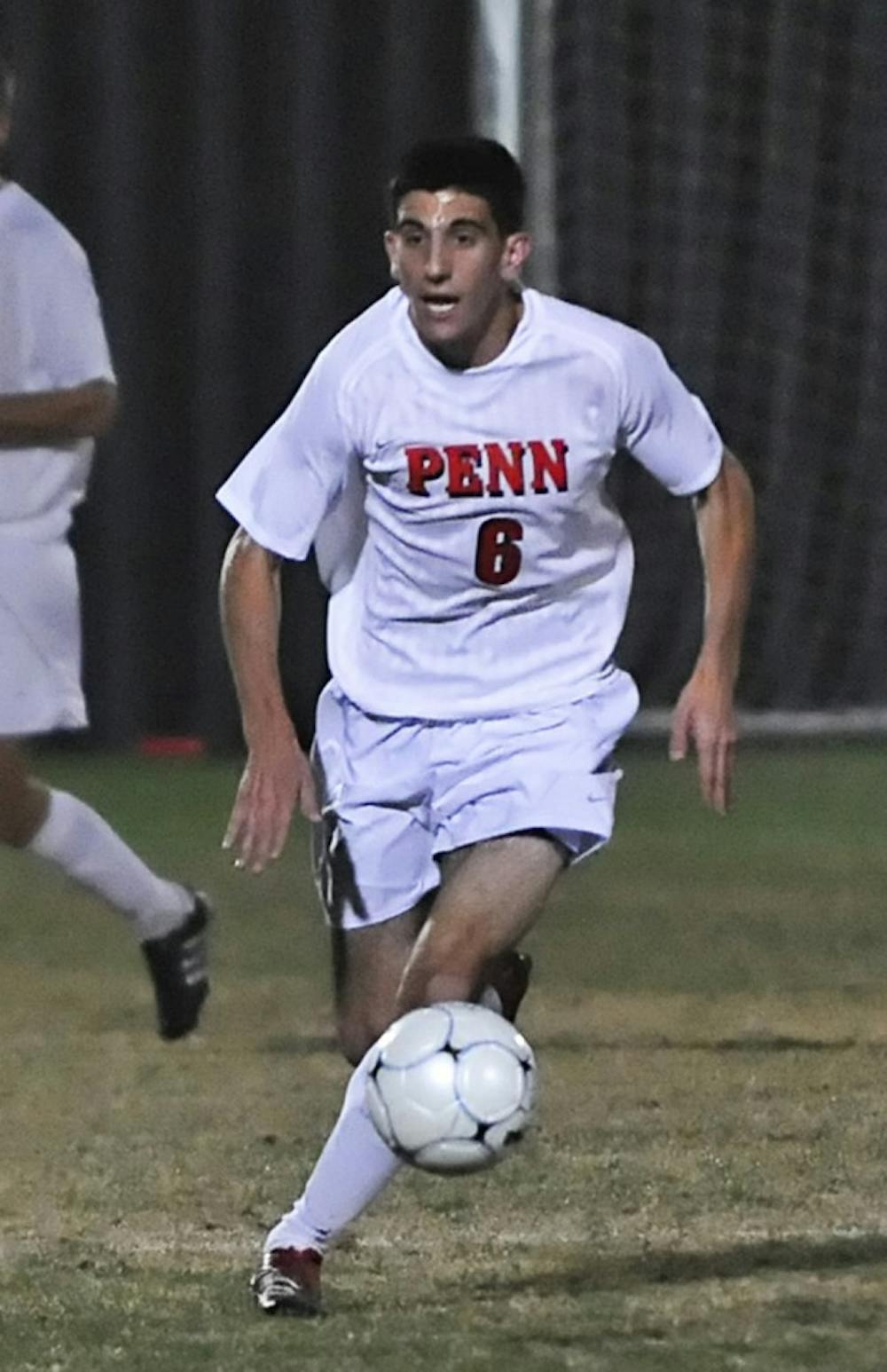The revolution in Egypt has certainly changed the Middle East, but for former Penn soccer player Aaron Ross, it has also changed his life.
Less than a year after the uprising that ousted longtime president Hosni Mubarak, Ross journeyed to Egypt, where he has been working for the past five months as a freelance journalist in Cairo and around the region.
“International correspondence was something that struck me as the best way to combine all of my interests,” Ross said. “I’ve always been interested in politics, law and travel. Being a journalist in a foreign country is an incredible way to experience a foreign culture and to get beneath the surface of it. [I can] do something I love, now, without too many constrictions.”
A leader on the soccer field, Ross started in 10 of the 15 games he played as a senior, including last fall’s first-round victory over Bucknell in the NCAA tournament.
But for the history major and Rhodes Scholar finalist, his passion for international relations and journalism — rather than soccer — have paved his path.
During his sophomore year at Penn, he started an international affairs magazine that ran for two years, and the summer after his junior year he interned in New York at The Nation magazine.
While still in college, one of his first articles on Egypt was published on Feb. 12, 2011, the day after Egyptian President Mubarak resigned. The piece explored the difficulties of prosecuting Mubarak and appeared online in the Huffington Post.
After graduating in 2011, Ross worked at Mother Jones magazine in San Francisco for six months until the opportunity to move to Egypt presented itself. Although, he was neither of Egyptian heritage nor had ever learned Arabic, he saw an opportunity to be at the vanguard of a country he had written about.
“I think we told him, ‘It was very nice in San Francisco, why don’t you stay put?’” his father Bruce Ross said jokingly. “We had reservations and concerns because that’s how parents are, but Aaron was very intent on doing this, and he had done a lot of homework about it. He had planned on what he was going to do and how he was going to do it, and barring any major calamity, there was every reason for him to go.”
Now, with a little over a month remaining until the first Presidential elections after the revolution, Ross has a chance to witness history.
“As much as there is heightened political awareness, if you were to walk around Cairo and other places in Egypt, it’s not something that’s jumping out at you every second of the day,” Ross said of the current climate.
In Cairo, Ross has been taking classes in Arabic every morning, and although the language barrier has been difficult, he has adapted quickly. Before moving, he emailed foreign correspondents working in Egypt to ask for advice about living in the country. The tight journalistic community within the city has helped him adjust, and he now has the freedom to chase any lead.
“Here, you’re completely free to go out and report,” he said. “If you want to pursue a story, you can go out there and talk to people and that’s ultimately what I’ve been doing and that’s why I’ve been enjoying this so much.”
He has also combined his love for soccer and the political situation in Egypt. Just a month after he arrived — and a few weeks after he attended his first soccer game in Egypt — riots on the field following a match between Al-Masry Club and Egypt’s largest team, Al-Ahly S.C., killed 79, injured over a thousand and forced the cancellation of the rest of Egypt’s soccer season.
Although the events were horrific and bizarre given the typical amount of security at games, Ross explained, they provided a unique lens to view Egypt’s progress post-Mubarak.
“The aftermath was fascinating because it changed the dynamic on the ground. That was right after the first anniversary of the revolution, and that kind of passed without anything too big going off. Suddenly there was this new incident and suddenly there was violence again.
“If anything, it was a reminder of how combustible things are here.”
In the aftermath, Ross wrote about the role of the teams’ fan groups, called the Ultras, whom Ross described as a “tight-knit organization that young people can put their energy and passion into.”
In the New York Times Goal Blog, he described the scene where the rival groups came together in the wake of the tragedy to denounce the violencec.
“There is so much right now in the news about Egypt, and a lot of it is from a very high level,” Ross’s father said. “We get a perspective from Aaron of how people think on the street walking around and how the soccer fans feel when something like this happens when all these people are killed at a soccer game.”
Although Ross is considering attending graduate school for international relations in the near future, he still enjoys writing for his blog and working in Cairo.
“It’s been an awesome experience … and something I hope to do in the future.”



